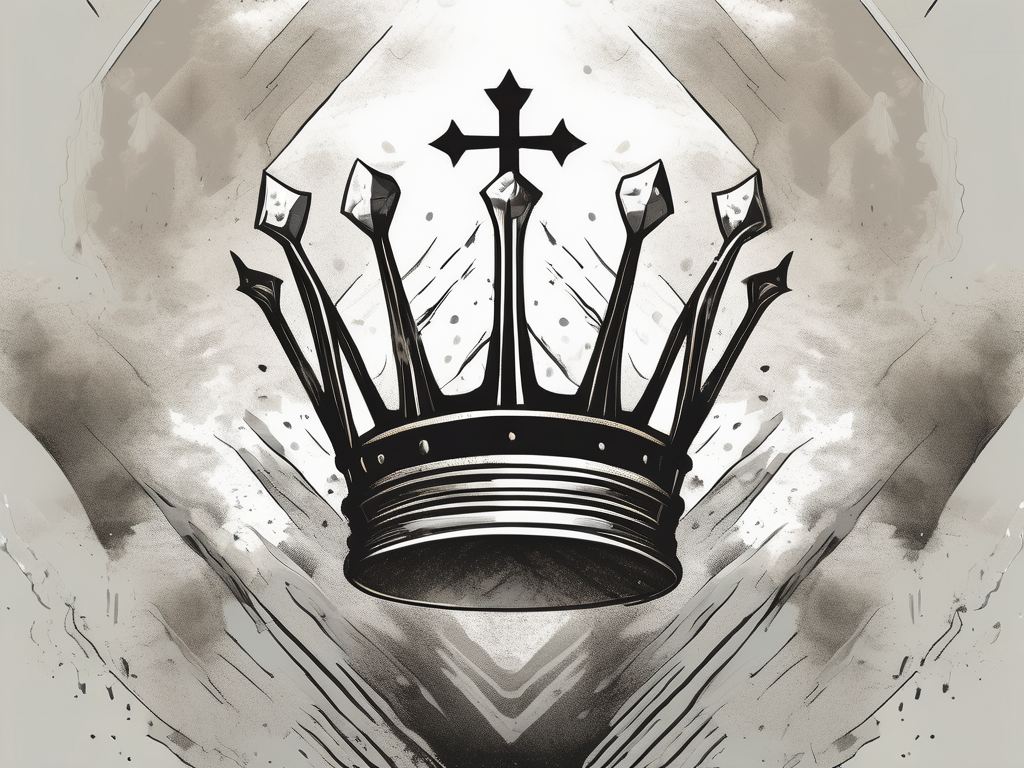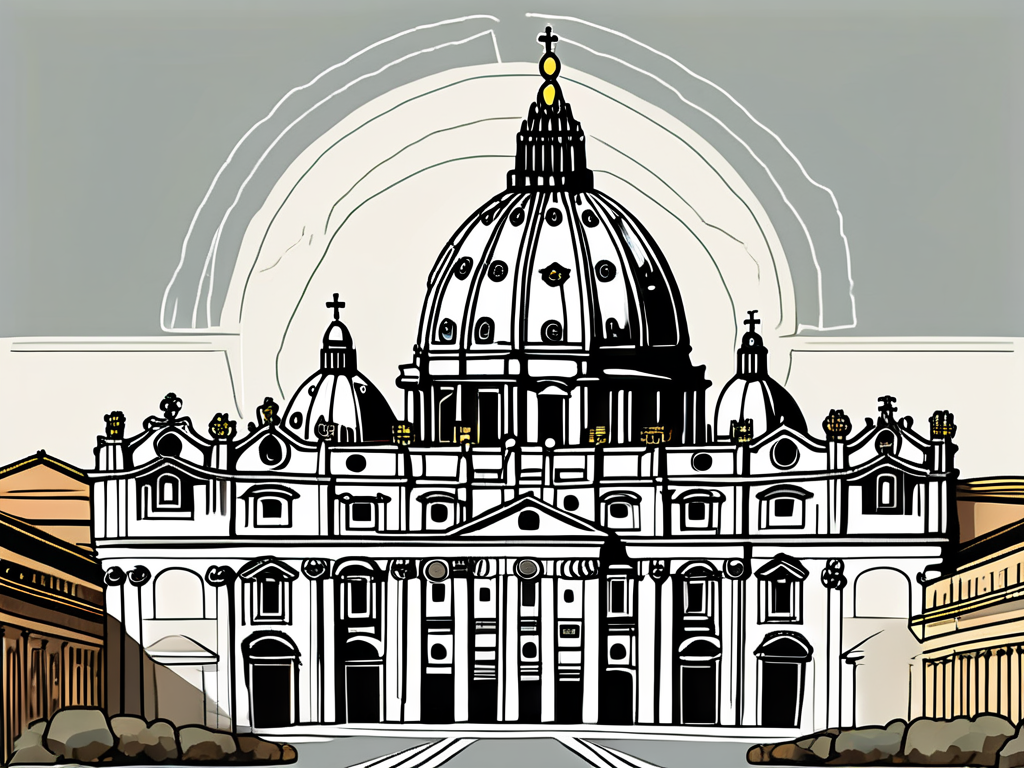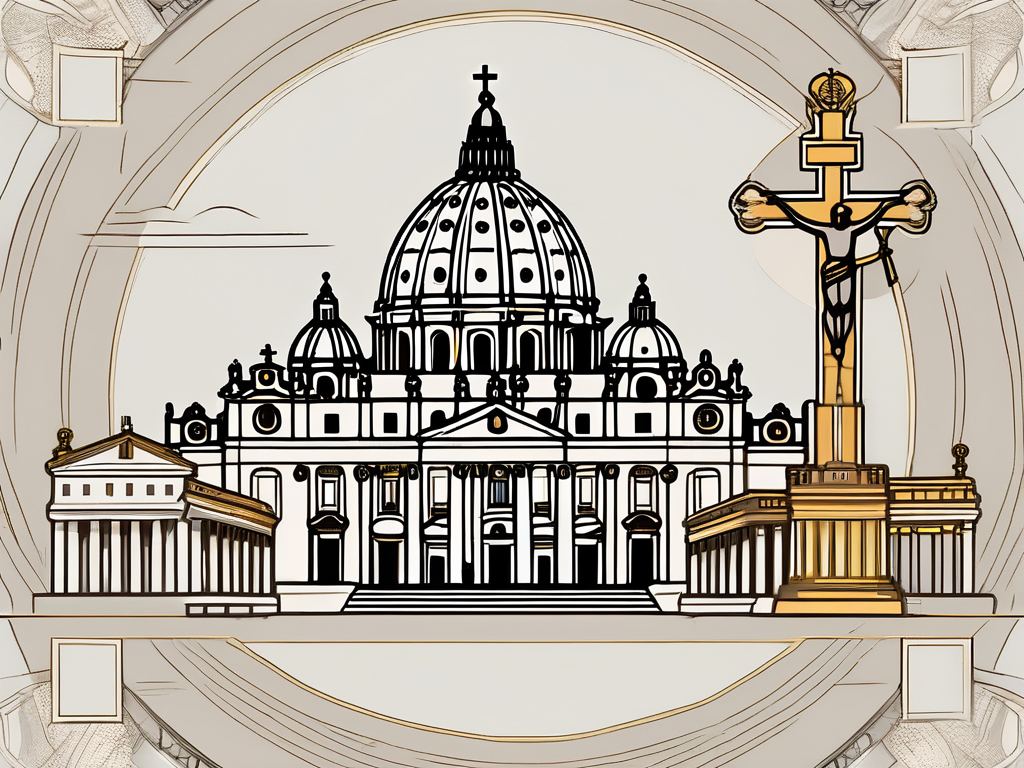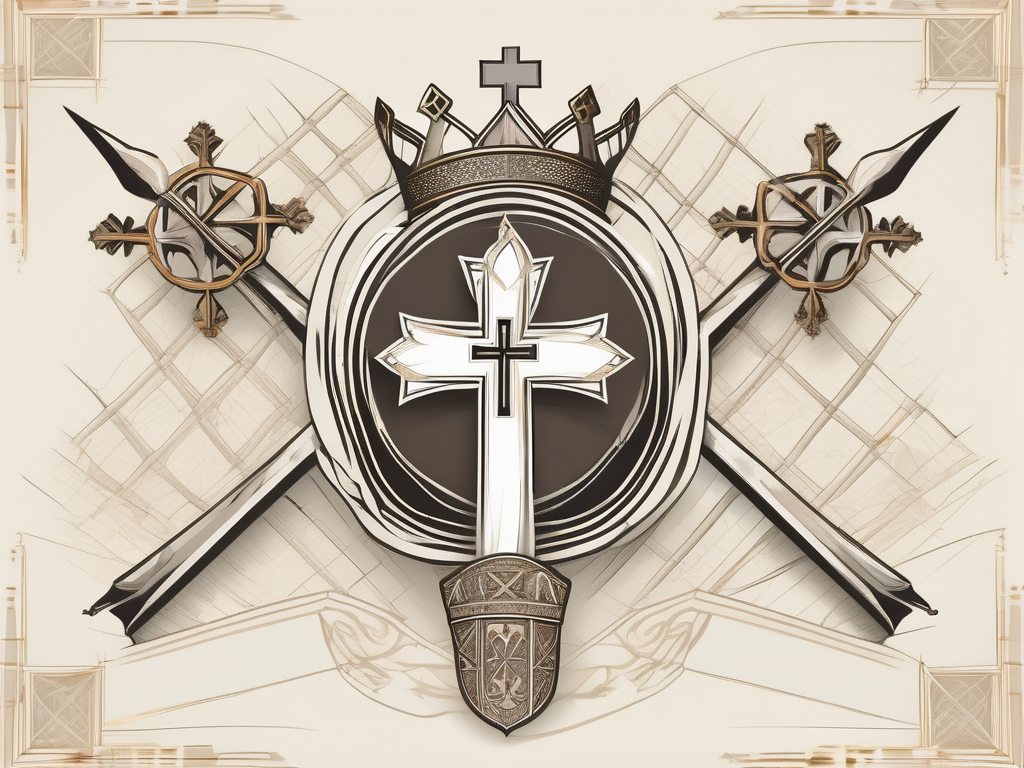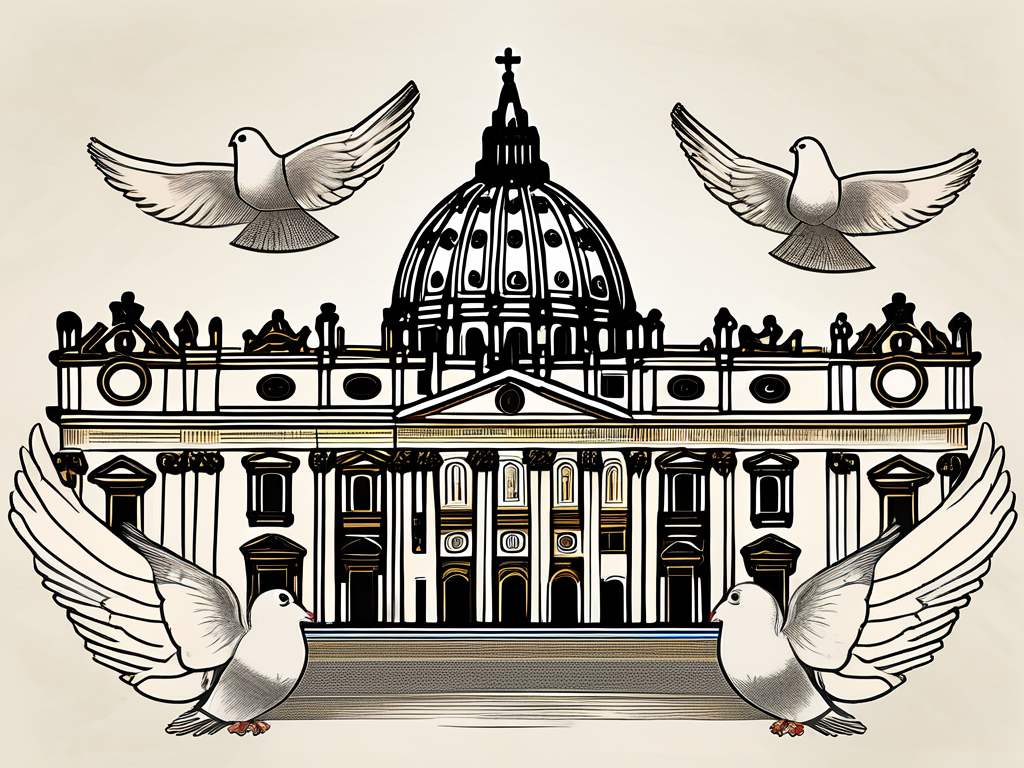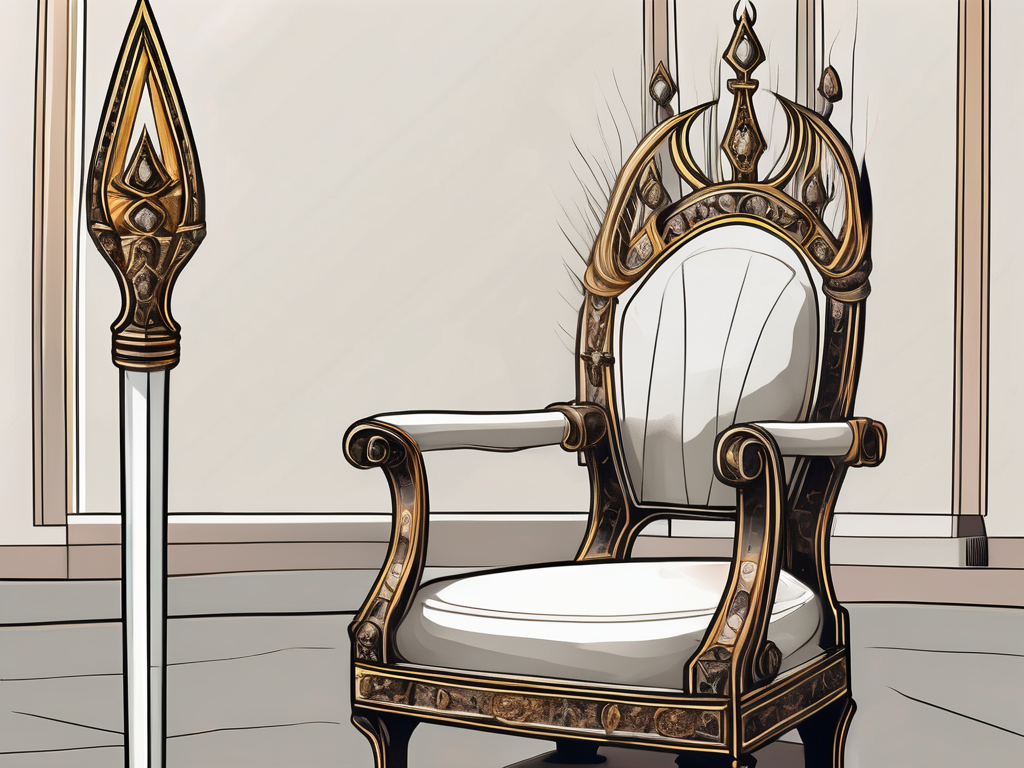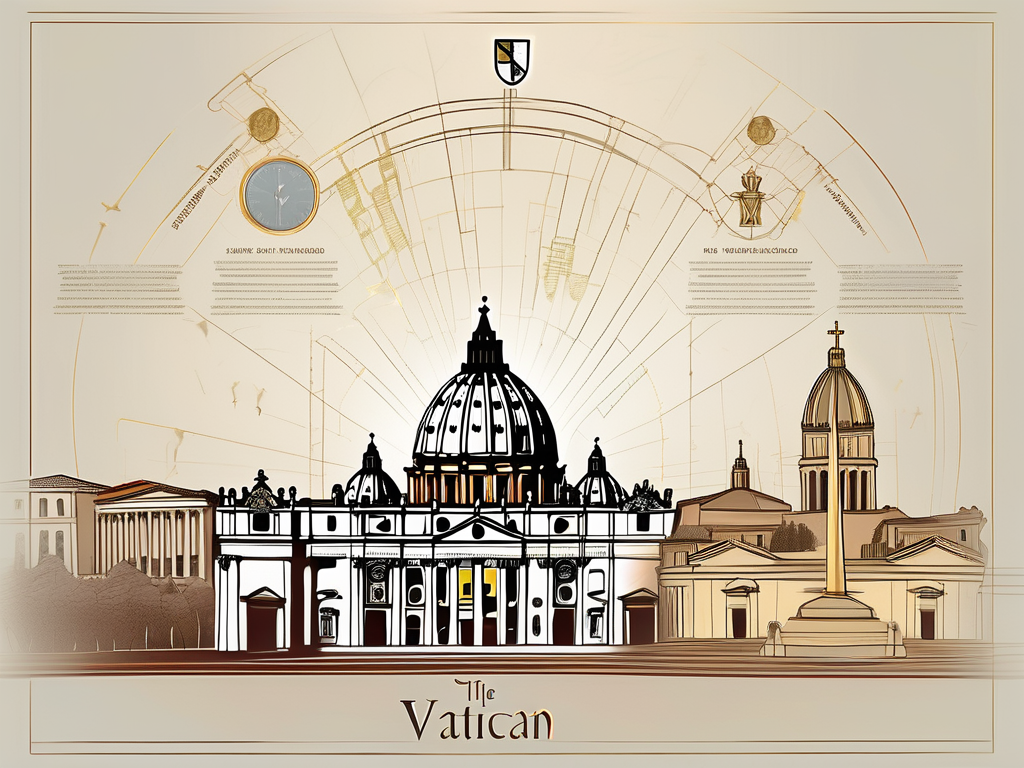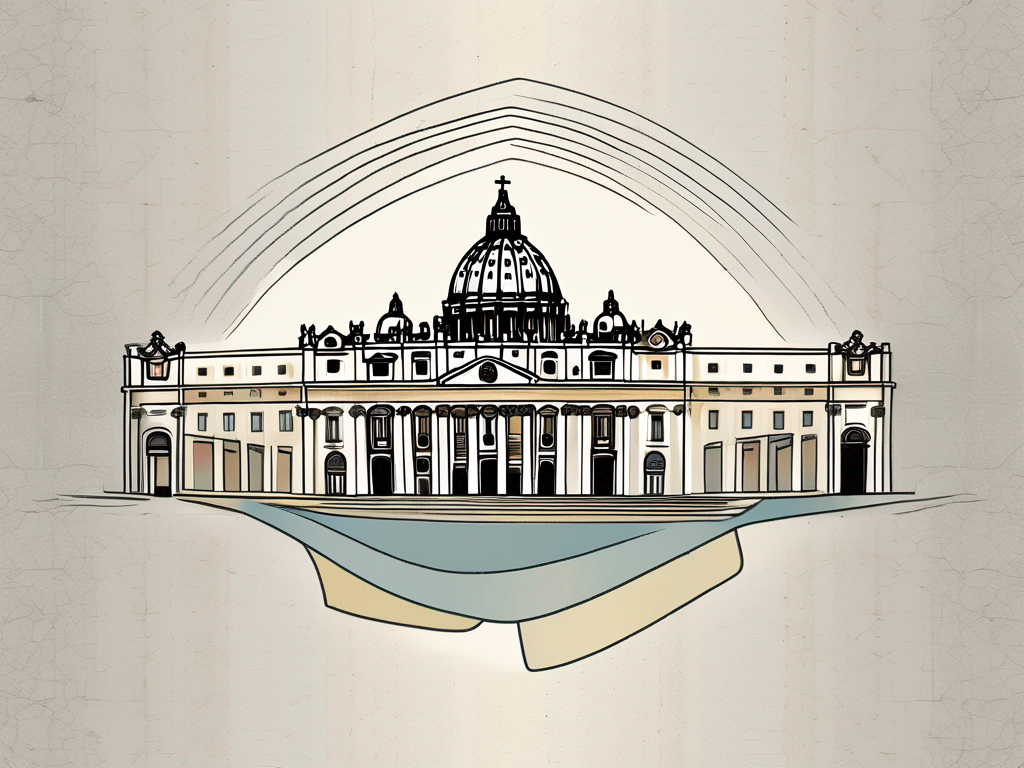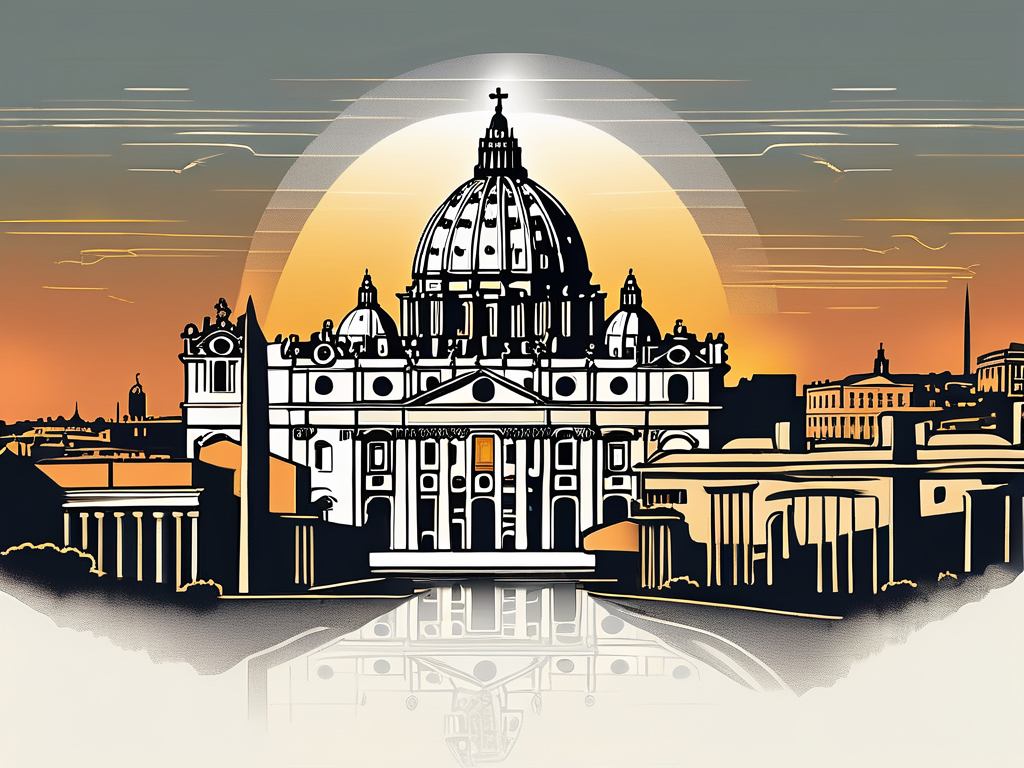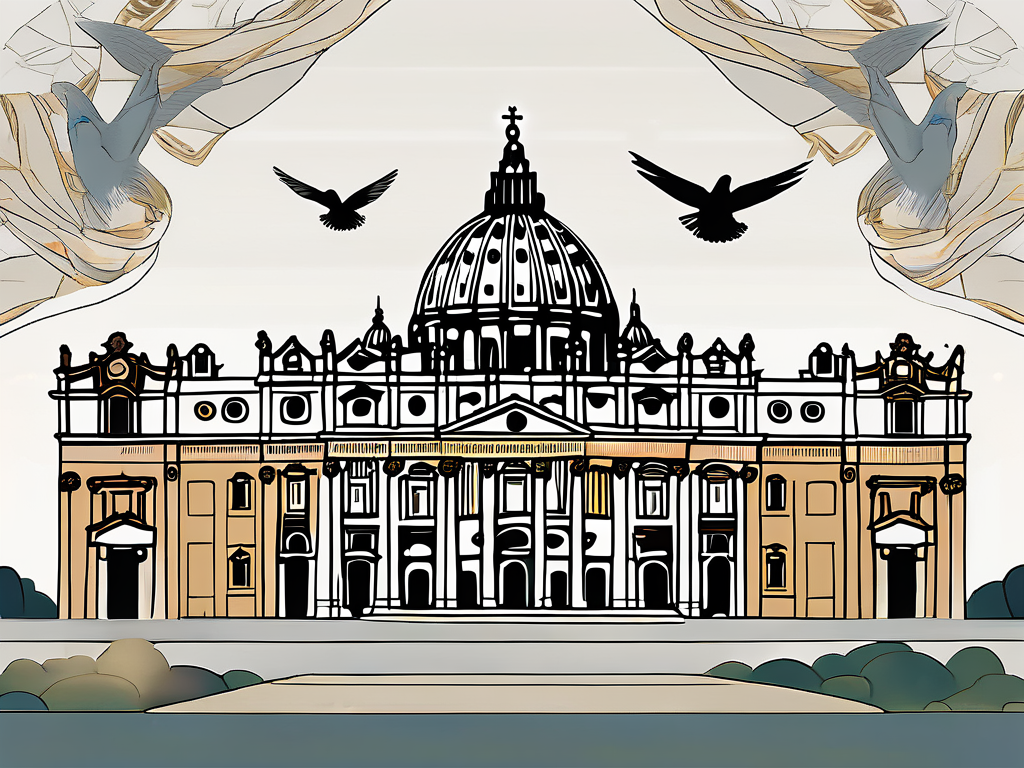During the late 15th century, a Pope emerged who would be remembered for his scandalous and controversial reign. Pope Alexander VI, born Rodrigo Borgia, was a figure whose actions were often criticized and debated. From his early life to his legacy, every aspect of Alexander VI’s papacy left a lasting mark on the Catholic Church and the world at large.
Early Life and Ascension to Papacy
Alexander VI’s journey to becoming the Pope was an intriguing tale. Born in 1431 in Xativa, Spain, Rodrigo Borgia grew up in a family that was well-connected in both political and religious circles. His father, Jofre Borgia, held a prestigious position in the court of King Alfonso V of Aragon.
Young Rodrigo’s path towards the papacy became evident when his uncle, Cardinal Alfonso Borgia, took him under his wing. Rodrigo accompanied his uncle to Rome and was exposed to the inner workings of the Church. This experience paved the way for his eventual ascension to the papal throne.
As Rodrigo immersed himself in the political and religious landscape of Rome, he quickly gained a reputation for his intelligence and charisma. He became known for his ability to navigate the complex web of alliances and rivalries that characterized the papal court.
It was during this time that Rodrigo began to cultivate relationships with influential figures in the Church. He formed close bonds with cardinals and bishops, gaining their trust and support. His strategic alliances would prove crucial in his quest for the papacy.
Rodrigo’s ambition and determination were unparalleled. He tirelessly worked to expand his network of supporters, attending lavish banquets and hosting extravagant parties to charm and win over influential individuals. His charisma and charm were legendary, and he effortlessly captivated those around him.
However, Rodrigo’s path to the papacy was not without obstacles. He faced fierce competition from other ambitious cardinals who also had their sights set on the coveted position. But Rodrigo was relentless in his pursuit, employing every tactic at his disposal to outmaneuver his rivals.
His efforts paid off in 1492 when he was elected as Pope Alexander VI. The news of his ascension sent shockwaves throughout the Catholic Church and the political landscape of Europe. Many were both fascinated and apprehensive about the new pontiff, unsure of what his reign would bring.
As Pope Alexander VI, Rodrigo wasted no time in consolidating his power and asserting his authority. He surrounded himself with loyal supporters, appointing them to key positions within the Church hierarchy. This move ensured that he had a strong network of allies who would help him implement his vision for the papacy.
Throughout his papacy, Alexander VI was known for his lavish lifestyle and extravagant tastes. He spared no expense in commissioning grand works of art and architecture, leaving a lasting legacy in the form of magnificent structures and masterpieces.
However, his papacy was not without controversy. Alexander VI’s reputation was marred by allegations of corruption and nepotism. He appointed his children to influential positions within the Church, earning him the nickname “The Borgia Pope.”
Despite the controversies surrounding his reign, Alexander VI’s impact on the Catholic Church and the world cannot be denied. His papacy marked a significant period of political and religious change, leaving a lasting imprint on history.
The Papal Court of Alexander VI
Once elected as Pope in 1492, Alexander VI wasted no time in surrounding himself with a powerful inner circle. Key figures such as his son Cesare Borgia, who was made a Cardinal at just 18 years old, and his daughter Lucrezia Borgia, played significant roles in his papal court.
Within the papal court, power dynamics and influence shifted constantly. Alexander VI was known for his cunning ability to play different factions against each other to maintain his hold on power. This political maneuvering often led to intense rivalries and dramatic shifts in alliances within the court.
As the head of the Catholic Church, Alexander VI’s papal court was a hub of political and religious intrigue. The court was a bustling center of activity, with influential figures from all over Europe vying for the Pope’s favor. Ambassadors, cardinals, and nobles from various countries filled the halls of the Vatican, each seeking to advance their own interests and secure their positions within the hierarchy.
One of the most notable figures in Alexander VI’s inner circle was his son, Cesare Borgia. Cesare was a charismatic and ambitious young man who quickly rose through the ranks of the church, thanks in part to his father’s influence. As a Cardinal, Cesare wielded considerable power and played a crucial role in his father’s political machinations.
Another influential member of the papal court was Lucrezia Borgia, Alexander VI’s daughter. Lucrezia was known for her beauty and charm, but she was also a shrewd and intelligent woman. She was married off strategically to powerful men in order to secure alliances and strengthen her family’s position. Lucrezia’s presence in the court added an air of elegance and sophistication, but also fueled rumors and gossip about her personal life.
The papal court of Alexander VI was not without its controversies. The Pope’s reputation was tarnished by accusations of corruption and nepotism. Critics argued that Alexander VI used his position to enrich his family and consolidate his power, rather than focusing on the spiritual well-being of the Church. These controversies only added to the intrigue and drama that surrounded the papal court.
Within the court, factions formed and dissolved, alliances were made and broken. The power struggles were not limited to political maneuvering, but also extended to religious matters. The Pope’s decisions on matters of faith and doctrine often sparked heated debates and divisions within the court, with different factions vying for their own interpretations to prevail.
Despite the controversies and power struggles, the papal court of Alexander VI was also a center of art and culture. The Pope was a patron of the arts, and the court attracted renowned artists, writers, and thinkers of the time. The Vatican became a hub of creativity and intellectual exchange, with artists like Michelangelo and Raphael leaving their mark on the city.
In conclusion, the papal court of Alexander VI was a complex and vibrant place, filled with political intrigue, power struggles, and cultural achievements. It was a microcosm of the tumultuous times in which it existed, reflecting the ambitions, rivalries, and artistic brilliance of the Renaissance era.
Scandals and Controversies
One of the most notorious aspects of Alexander VI’s reign was the rampant nepotism and corruption that engulfed the Vatican. The Pope used his position to amass wealth and power for his family, leading to accusations of favoritism and bribery.
But the controversies did not end there. Alexander VI’s moral outrages and scandalous behavior became the subject of public perception and intense scrutiny. Rumors swirled about his alleged affairs and excessive indulgences, tarnishing the image of the Catholic Church and the papacy.
The scandalous behavior of Alexander VI extended beyond the confines of the Vatican. The Pope’s lavish parties and extravagant lifestyle were the talk of the town. Guests at these opulent gatherings were treated to an array of sumptuous delicacies and fine wines, all at the expense of the papal treasury. The excesses of these events only fueled the public’s perception of Alexander VI as a morally bankrupt leader.
Furthermore, rumors of the Pope’s numerous mistresses circulated throughout Europe. It was said that Alexander VI maintained a harem of beautiful women, whom he showered with expensive gifts and privileges. These alleged affairs not only scandalized the faithful but also raised questions about the Pope’s commitment to celibacy and his ability to fulfill his spiritual duties.
In addition to his personal scandals, Alexander VI’s papacy was marred by political controversies. The Pope’s alliances with powerful families and rulers were seen as a means to consolidate his own power, rather than a genuine commitment to the welfare of the Church. This led to accusations of corruption and manipulation, further eroding the credibility of the papacy.
The scandals and controversies surrounding Alexander VI had far-reaching consequences. They not only damaged the reputation of the Catholic Church but also fueled the growing discontent among the faithful. Many began to question the authority and legitimacy of the papacy, leading to a period of turmoil and division within the Church.
Political Maneuvering and Wars
The Borgia family’s thirst for political power was insatiable. Alexander VI and his children were involved in numerous political maneuverings and played a significant role in the Italian Wars that ravaged the peninsula during the late 15th and early 16th centuries.
Using his strategic mind, Alexander VI sought to forge alliances and acquire territories to further his family’s ambitions. Cesare Borgia, in particular, was a skilled military leader who commanded an army and expanded the influence of the papal states through both diplomacy and force.
Legacy and Historical Interpretation
Alexander VI’s reign left a lasting impact on the Catholic Church and how the papacy was viewed by the world. His controversial actions and scandalous reputation cast a shadow over the institution that would take years to overcome.
When it comes to Alexander VI’s legacy, opinions vary greatly. Some see him as a manipulative and morally bankrupt Pope who brought shame to the papacy. Others argue that he was a shrewd politician who navigated the turbulent political landscape of the time to protect the interests of the Church.
Impact on the Catholic Church
The controversies surrounding Alexander VI ushered in a period of reform within the Catholic Church. The excesses and moral failings of his papacy prompted calls for change and laid the groundwork for the Protestant Reformation, just decades later.
Despite the scandals, the Church continued to evolve and adapt to the challenges of the time. The papacy itself underwent reforms to address issues of nepotism and corruption, ensuring that future Popes would not fall into the same trap as Alexander VI.
Modern Views on Pope Alexander VI
Even today, historians and scholars debate the true nature of Alexander VI’s reign. Some argue that his controversial actions should overshadow any achievements, while others suggest that his political maneuverings and successful consolidation of power were notable accomplishments.
Whether seen as a morally bankrupt Pope or a skilled political player, Pope Alexander VI remains a captivating and divisive figure in history. His reign continues to be studied and analyzed, offering valuable insights into the complexities and challenges faced by the Catholic Church during a tumultuous period.
